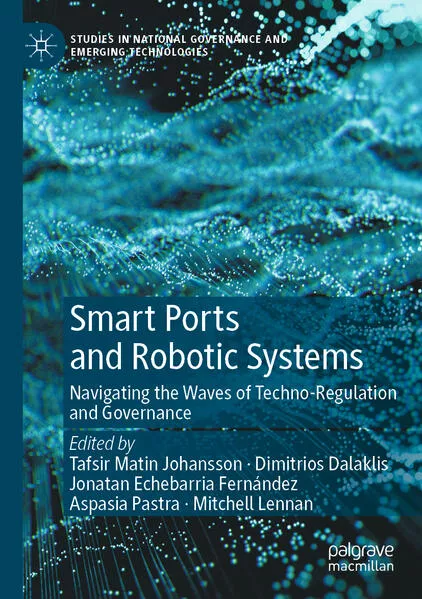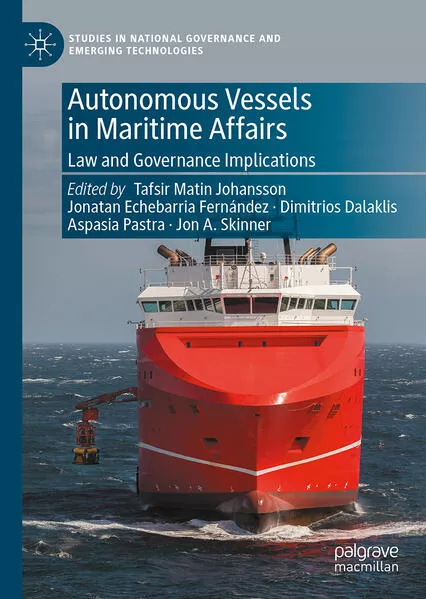
- Publikationen ca: 5
- Fragen & Antworten
Tafsir Matin Johansson
Tafsir Matin Johansson is an Assistant Professor at the World Maritime University-Sasakawa Global Ocean Institute (GOI) in Malmö, Sweden. Tafsir is a techno-policy analyst with a Ph.D. in Maritime Affairs from the World Maritime University. His duties at the GOI include ocean governance and policy research, teaching and developing innovative policy models to better assess drivers and indicators relevant to ocean research agenda. Tafsir has published extensively on maritime and ocean issues including: techno-regulatory dynamic governance, Arctic governance, vessels of concern, corporate social responsibility, marine pollution, climate change, conflict management and trust ecosystem, and Brexit and fisheries. Tafsir has worked on or led a number of multidisciplinary projects, including: regulatory development projects funded by Transport Canada (Government of Canada) since 2014, as well as those funded under the Canadian Government’s Oceans Protection Plan covering numerous topics critical to the maritime and ocean domain. Currently Tafsir serves as a CO-PI in a European Union Horizon2020 Programme funded project titled “Overcoming Regulatory Barriers for Service Robotics in an Ocean Industry Context”.
Jonatan Echebarria Fernández is an Honorary Lecturer at The City Law School (City, University of London, UK) and a Spanish qualified lawyer. He holds a PhD in Law from the Copenhagen Business School (CBS) and he is a member of a variety of associations related to his main teaching and research interests, spanning from Maritime & Commercial Law to Public & Private International Law, as well as Environmental Law. Dr Echebarria has served as an Associate Professor of Law in 2021 and 2022 at BI Norwegian Business School. His previous professional experience includes working at Copenhagen Business School, the Permanent Representation of Spain to the EU, the European Investment Bank, the Spanish Embassy in Brussels, the Luxembourg Maritime Administration, and the Bilbao Port Authority.
Dimitrios Dalaklis joined the World Maritime University (WMU) in 2014, upon completion of a twenty-six years distinguished career with the Hellenic Navy. His expertise revolves around the interrelated maritime safety and security domains. He is an Associate Fellow of the Nautical Institute (NI) and a Member of the International Association of Maritime Economists (IAME). With a Bachelor from the Hellenic Naval Academy, his postgraduate studies took place in the Naval Postgraduate School of the United States (MSc in Information Technology Management, with distinction & MSc in Defense Analysis). He then conducted his PhD research at the University of the Aegean, Department of Shipping, Trade and Transport. He is the author/co-author of many peer-reviewed articles, book & studies in both the Greek and English languages, with a strong research focus on issues related to the implementation of the SOLAS Convention and especially electronic equipment/systems supporting the safety of navigation.
Aspasia Pastra has been appointed as a Post-Doc Fellow and Maritime Policy Analyst at the World Maritime University-Sasakawa Global Ocean Institute (GOI) in Malmö, Sweden. To date, she has been involved in a number of State-of-the-Art Regulatory Projects in maritime policy, ocean technology, environmental protection, port governance and gender diversity in the maritime sector. Dr. Pastra has published extensively in the field of maritime policy and governance, maritime robotics & techno-regulatory advancements, global environmental change, team dynamics and leadership. She has been a lecturer in UK institutions in the field of business and maritime administration. She has extensive experience in shipping as she worked for many years in large shipping companies. She has also participated in the Marine Environment Protection Committee (MEPC) and Maritime Safety Committee (MSC) of the International Maritime Organisation (IMO), as a member of the Greek Delegation. Dr. Pastra holds a B.Sc. degree in Public Administration from Panteion University of Social and Political Sciences in Greece, an MBA from Cardiff University in the UK and an MSc in Maritime Administration from the World Maritime University. She was awarded her PhD in the area of corporate governance from Brunel University in London.
Jon A. Skinner is a retired Commander, US Navy, and a long time Alaskan resident. His PhD from the University of Alaska Fairbanks is Interdisciplinary - Polar Geography and Strategic Studies. He also holds an MS (Intelligence) and an MA (Strategic Planning) from the Naval Postgraduate School, Monterey California. He currently serves as an adjunct with the Mat-Su College (University of Alaska Anchorage) and as an instructor with the Graduate College of Professional Military Education (Air University).
Smart Ports and Robotic Systems
This book provides a comprehensive overview of smart ports and remote technologies in the maritime industry. It demonstrates how modern advances in artificial intelligence and robotics have transformed the shipping industry, and assesses the impact of this technology from a law and governance standpoint.
Smart Ports and Robotic Systems
This book provides a comprehensive overview of smart ports and remote technologies in the maritime industry. It demonstrates how modern advances in artificial intelligence and robotics have transformed the shipping industry, and assesses the impact of this technology from a law and governance standpoint.
Smart Ports and Robotic Systems
This book provides a comprehensive overview of smart ports and remote technologies in the maritime industry. It demonstrates how modern advances in artificial intelligence and robotics have transformed the shipping industry, and assesses the impact of this technology from a law and governance standpoint.
Autonomous Vessels in Maritime Affairs
This book examines law and governance implications in relation to maritime autonomous surface ships (MASS). Adopting a multi-disciplinary approach, it focuses on a wide array of timely, topical and thorny issues, including naval warfare and security, seaworthiness and techno-regulatory assessments, global environmental change, autonomous passenger transportation, as well as liability and insurance.
Autonomous Vessels in Maritime Affairs
This book examines law and governance implications in relation to maritime autonomous surface ships (MASS). Adopting a multi-disciplinary approach, it focuses on a wide array of timely, topical and thorny issues, including naval warfare and security, seaworthiness and techno-regulatory assessments, global environmental change, autonomous passenger transportation, as well as liability and insurance.




